heroes
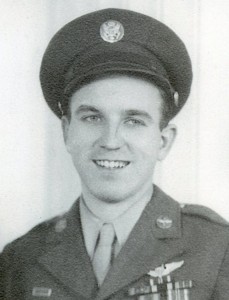
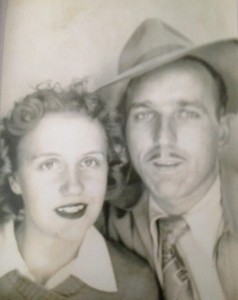 I have been studying a lot lately about World War II. It is my “favorite” war…if one can have a favorite war. My dad, Allen Spencer was a Staff Sergeant in World War II. He served as flight engineer and top turret gunner on a B-17G, the flying fortress. The more I study World War II, the more I realize just how dangerous was…no matter what branch of the service a soldier was in. Dad’s family was one that didn’t have to suffer the loss of their soldier, because my dad came home after the war. He was the only one in his family that saw action in World War II, other than his half-brother, Norman Spencer. Dad’s older brother, Bill tried to serve, but due to flat feet and a hernia, he was turned down. My Uncle Bill was devastated by the rejection. My dad was his little brother, and he had always felt a need to protect him, not because Dad was accident prone or anything, but because he was his little brother. Now, he was going to have to let Dad go without the “backup” that Uncle Bill had hoped to provide. That was one of the hardest things my Uncle Bill ever had to do. So, Dad went with angel backup instead…and his mother’s prayers.
I have been studying a lot lately about World War II. It is my “favorite” war…if one can have a favorite war. My dad, Allen Spencer was a Staff Sergeant in World War II. He served as flight engineer and top turret gunner on a B-17G, the flying fortress. The more I study World War II, the more I realize just how dangerous was…no matter what branch of the service a soldier was in. Dad’s family was one that didn’t have to suffer the loss of their soldier, because my dad came home after the war. He was the only one in his family that saw action in World War II, other than his half-brother, Norman Spencer. Dad’s older brother, Bill tried to serve, but due to flat feet and a hernia, he was turned down. My Uncle Bill was devastated by the rejection. My dad was his little brother, and he had always felt a need to protect him, not because Dad was accident prone or anything, but because he was his little brother. Now, he was going to have to let Dad go without the “backup” that Uncle Bill had hoped to provide. That was one of the hardest things my Uncle Bill ever had to do. So, Dad went with angel backup instead…and his mother’s prayers.
Dad served and returned home to his family, and because he did, my sisters and I, and our whole family exists. 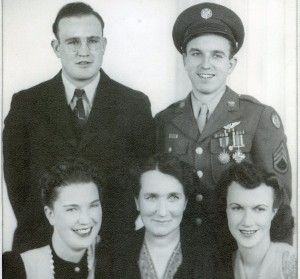
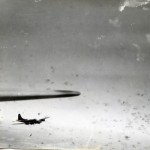 Dad, like many of the soldiers in that generation, never spoke of his time in the service during World War II, and all we knew was what little we heard from his family, and a couple of newspaper articles. Knowing my dad as we did, those years were his duty, but never his desire. Dad was a gentle man, and the idea of killing must have weighed heavily on him. Nevertheless, he knew it was his duty, and he would never have shirked his duty. There were a number of heroic times in Dad’s time in the service. He actually saved his crew, when he cranked down the landing gear just in time to hit the runway. It must have been damaged by the anti-aircraft flak, because it wouldn’t come down. There were other times that his actions saved his crew, such as the enemy planes that he shot down. They were a good team. They were all heroes…every single one.
Dad, like many of the soldiers in that generation, never spoke of his time in the service during World War II, and all we knew was what little we heard from his family, and a couple of newspaper articles. Knowing my dad as we did, those years were his duty, but never his desire. Dad was a gentle man, and the idea of killing must have weighed heavily on him. Nevertheless, he knew it was his duty, and he would never have shirked his duty. There were a number of heroic times in Dad’s time in the service. He actually saved his crew, when he cranked down the landing gear just in time to hit the runway. It must have been damaged by the anti-aircraft flak, because it wouldn’t come down. There were other times that his actions saved his crew, such as the enemy planes that he shot down. They were a good team. They were all heroes…every single one.
While my dad was a hero during World War II, I will always consider his most important accomplishment, his family. Without my dad’s safe return from the war, we would not exist. He met my mom, Collene Byer Spencer when she was still a schoolgirl, but even then, they knew it was that forever love. They married in 1953, an 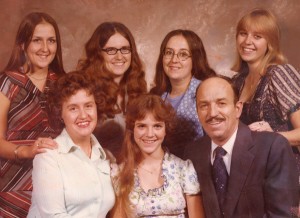
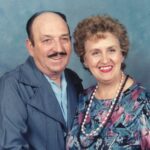 became the parents of five daughters, Cheryl, Masterson, Caryn Schulenberg (me), Caryl Reed, Alena Stevens, and Allyn Hadlock. They went on to have grandchildren and great grandchildren…all of whom owe their lives to the fact that dad came home from war. For that I praise God, and I give Him all the glory. Today would have been my dad’s 99th birthday. Happy birthday in Heaven, Dad. We love and miss you very much and look forward to seeing you again when we get to Heaven.
became the parents of five daughters, Cheryl, Masterson, Caryn Schulenberg (me), Caryl Reed, Alena Stevens, and Allyn Hadlock. They went on to have grandchildren and great grandchildren…all of whom owe their lives to the fact that dad came home from war. For that I praise God, and I give Him all the glory. Today would have been my dad’s 99th birthday. Happy birthday in Heaven, Dad. We love and miss you very much and look forward to seeing you again when we get to Heaven.
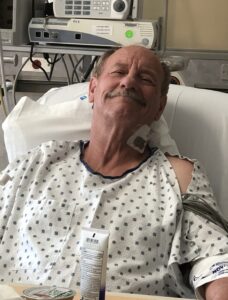 It’s hard to wrap my head around the fact that four years ago today, my husband, Bob Schulenberg had a heart attack in the Walmart parking lot. It was the Widowmaker…one of the deadliest types of heart attack. MY memory of that event, however, is as vivid today as if I were standing there watching it happen all over again. That day could have changed my life forever and taken his life from him…but it didn’t. My husband is still here because there are heroes among us!! They are everyday people who see a deadly situation, and don’t just turn their backs. They take action. I didn’t see the attack, because Bob had gone to put the shopping cart in the rack. I was checking my phone when a man I don’t know to that day knocked on my window and asked if I “knew this man?” I immediately realized that Bob had taken too long to get into the car.
It’s hard to wrap my head around the fact that four years ago today, my husband, Bob Schulenberg had a heart attack in the Walmart parking lot. It was the Widowmaker…one of the deadliest types of heart attack. MY memory of that event, however, is as vivid today as if I were standing there watching it happen all over again. That day could have changed my life forever and taken his life from him…but it didn’t. My husband is still here because there are heroes among us!! They are everyday people who see a deadly situation, and don’t just turn their backs. They take action. I didn’t see the attack, because Bob had gone to put the shopping cart in the rack. I was checking my phone when a man I don’t know to that day knocked on my window and asked if I “knew this man?” I immediately realized that Bob had taken too long to get into the car.
I jumped out of the car and ran to the other side. There on the ground, with blood coming from his head was my husband. His eyes were open, but he was not there. I immediately thought that I had lost him. Then I came to my senses…sort of and got down beside him. I “demanded” that he wake up. Looking back now, I must have looked crazy, telling my unconscious husband to “wake up and get back to life” basically. Then I noticed someone was there, with a stethoscope!! Who carries a stethoscope in their car, and how did she know we needed her? Only an angel, sent by God to be there!! There were many angels in that parking lot that day. Some I now know, like Sean Pesicka-Taggart, the man who first came to my husband’s aid, and his girlfriend Laura Lance, who was a transport worker at Wyoming Medical Center, at that time (I’m very proud to say that she is now a Radiologic Technologist). Laura assisted the nurse, Ginger Sims who was the one to realize that it was not a fall or hit-and-run, but Bob’s heart that had stopped. She told her son to push the OnStar button and tell the ambulance where to respond. Then, Ginger took immediate action, and if she had not, I would have been a widow today. Ginger was doing CPR, and told me how to do rescue breathing, because I couldn’t think straight. Laura assisted in CPR, thankfully, because that is a hard job, and no one can do it for very long. Then just as suddenly, another nurse, who worked with Ginger saw what was going on, and stopped to help. Valya Boycheva is also a nurse at Wyoming Medical Center, and she took over CPR for Laura. Together the three of them continued CPR until the fire department and ambulance arrived. I’m not sure, but I think Sean called them. When the paramedics took over, I stood back and thought…”How will I ever know who to thank for their assistance?” So many heroes had stepped out of thin air, to give their all for my husband. Somehow, God made sure that I found out who they were, and I have been forever grateful for that too.
There were other angels there that day…prayer warriors!! These people were in the parking lot, and saw the situation, and immediately started praying…Lori DeSanti (a friend of mine from church), Chelsea Kessler (who immediately called her dad and stepmom, Page and Donna LePage…who, not knowing who they were praying for, called my boss, Jim Stengel and got him in prayer too), and Chelsea’s husband, Zack Kessler. There were probably countless other people there praying, because there were angels all over that parking lot that day. I have no doubt about that, and because of all the heroes, prayer warriors and angels there that day, my husband is health and most of all, still with me today.
To add to the incredible events of that day, it seemed only seconds before the firetrucks arrived, with a friend of Bob’s on the crew. Jerod Levin saw me and immediately came to my aid. I was standing there feeling very 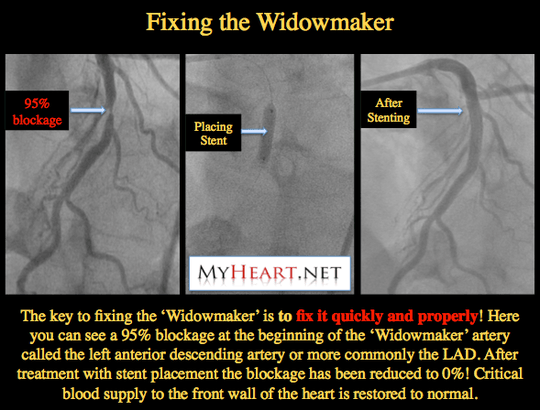 small and totally lost, and he told me I could go with Bob in the ambulance, and that he would bring my car to the hospital for me!! And, when we got to the hospital…on a Sunday afternoon, all the right people, Jon Cook and Sam Cann (both of whom work in the Heart Cath Lab), just happened to be there, and they know Bob, because he had worked on their cars. From attack to full treatment took two hours…two hours!! How could that have all came together? Only God…only God!! And to this day, I give him all the praise, and I will be forever grateful for the heroes among us, who stepped up to the plate when Bob and I needed them most. They are family now, and they always will be.
small and totally lost, and he told me I could go with Bob in the ambulance, and that he would bring my car to the hospital for me!! And, when we got to the hospital…on a Sunday afternoon, all the right people, Jon Cook and Sam Cann (both of whom work in the Heart Cath Lab), just happened to be there, and they know Bob, because he had worked on their cars. From attack to full treatment took two hours…two hours!! How could that have all came together? Only God…only God!! And to this day, I give him all the praise, and I will be forever grateful for the heroes among us, who stepped up to the plate when Bob and I needed them most. They are family now, and they always will be.
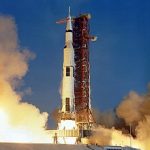
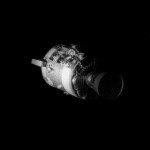 On this the 50th anniversary of the Apollo 13 near disaster, I am reminded of the tenacity of the human spirit. The space program was becoming commonplace, and while the plan was to televise parts of the mission, the networks decided not to play the program, because space travel had become mundane…nothing new happened, and it was then, as it is now, that sensationalism sells news. Then, completely unexpectedly, everything changed. Our astronauts were in serious trouble. After the explosion that would render the space capsule useless, and those famous words were uttered, “Houston, we’ve had a problem here,” everyone wanted to follow this very serious situation. Now it was important to watch this previously mundane mission.
On this the 50th anniversary of the Apollo 13 near disaster, I am reminded of the tenacity of the human spirit. The space program was becoming commonplace, and while the plan was to televise parts of the mission, the networks decided not to play the program, because space travel had become mundane…nothing new happened, and it was then, as it is now, that sensationalism sells news. Then, completely unexpectedly, everything changed. Our astronauts were in serious trouble. After the explosion that would render the space capsule useless, and those famous words were uttered, “Houston, we’ve had a problem here,” everyone wanted to follow this very serious situation. Now it was important to watch this previously mundane mission.
The reactions, both before and after the explosion, are completely normal. People tend to look for the excitement is life to keep them interested…good or bad excitement. We find ourselves glued to the television after a disaster, hoping to learn something new. We are the same way about exciting good news, but with the Apollo 13 mission, the news of another lunar landing wasn’t new. We had seen it all before…until it all went wrong. The NASA families, and especially the families of the astronauts in trouble, were less than impressed by the sudden interest in their men onboard Apollo 13, and I can understand why. It seemed no one cared, until it went wrong. Yes, the people wanted the men home safely, but it was the drama that drew them to the situation, and finally, had us thinking about something outside of ourselves. Yes, all turned out great in the end, and the men came home safely, but the space program didn’t increase in importance in our lives…until the next disaster, that is.
It’s not that we, the people are not interested in anything that doesn’t keep us riveted to our chair, staring at the news, but that we tend to overlook much of what is going on around us, until it affects us. Take the Coronavirus for example. Diseases come and go, and provided it doesn’t impact us or the ones we love, most diseases come and go with little notice by the general public. That’s why pandemics are so widely televised and watched. The affect everyone, in one way or another. We might know someone who has it, or have people in the disease hotspots, or have someone working in healthcare who is dealing with it, or we might just find ourselves drawn to the situation because we are one nation living in one world. Whatever our reason, suddenly we are interested, and that’s when we step outside of ourselves.
I have been very moved by the response of the American people during the Coronavirus Pandemic. We have seen people making medical masks for the hospitals, collecting food for those in need, and going to the store for those who can’t. We have seen people cheering the first responders, healthcare workers, grocery store workers, and food workers, who have all stayed on the job, to keep things running smoothly. We have other businesses that have had to stay open too…the banks, insurance agencies, sanitation workers, street workers, agriculture workers, military and national guard members, and a number of others. All these people are heroes. We could not stay at home, like we have been asked to do, if these heroes didn’t get up and go to work every 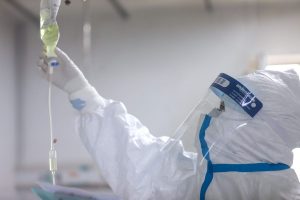 day, despite personal risks. As President Trump has said, we are at war…fighting an invisible enemy, so anyone who leaves their house takes a certain measure of risk of contracting the disease. Those who go to work are the bravest people we have. We owe them so much. We have also seen many people who have changed up their entertainment mediums, and have started giving free concerts on the internet. Churches have started streaming services. Choirs from many other areas have put together “social distancing” performances. All these things are designed to keep our spirits up…something we all need in these trying times. The thing that I find the most amazing is how we have all came together, how we stepped outside of ourselves to make a difference.
day, despite personal risks. As President Trump has said, we are at war…fighting an invisible enemy, so anyone who leaves their house takes a certain measure of risk of contracting the disease. Those who go to work are the bravest people we have. We owe them so much. We have also seen many people who have changed up their entertainment mediums, and have started giving free concerts on the internet. Churches have started streaming services. Choirs from many other areas have put together “social distancing” performances. All these things are designed to keep our spirits up…something we all need in these trying times. The thing that I find the most amazing is how we have all came together, how we stepped outside of ourselves to make a difference.
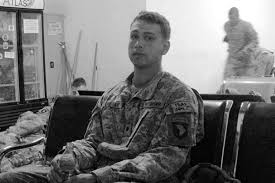 So many of the men and women who return from combat, when many of their buddies didn’t, suffer from a multitude of feelings. Many feel like it should been them killed in the bombing, shooting, plane crash, or whatever it might have been that took their buddy or buddies, and somehow let them alive. No matter that they were quite possibly wounded too, maybe even lost a limb. The point was that somehow they had come back alive, and they carry the guilt of that with them always.
So many of the men and women who return from combat, when many of their buddies didn’t, suffer from a multitude of feelings. Many feel like it should been them killed in the bombing, shooting, plane crash, or whatever it might have been that took their buddy or buddies, and somehow let them alive. No matter that they were quite possibly wounded too, maybe even lost a limb. The point was that somehow they had come back alive, and they carry the guilt of that with them always.
Some of those returning heroes struggle with the loss of their feeling all their lives. Some of them take risks, feeling like they are living on borrowed time, and if their time comes, it will almost be a form of justice. Some feel 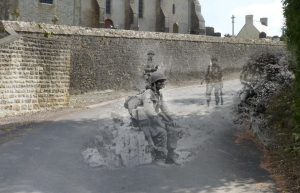 like it is borrowed time, but look at it more like living a gift. They might try to live up to what they think would make their buddies would be proud of. It doesn’t matter how they live their lives, for some, it will never be enough…in their minds anyway. They feel like their buddy died, and because of that, they can have a family…one their buddy never got to have. And if those buddies who were lost had a family, they feel an even greater burden, because not only did their buddy lose out of being with his family, but the family lost him too.
like it is borrowed time, but look at it more like living a gift. They might try to live up to what they think would make their buddies would be proud of. It doesn’t matter how they live their lives, for some, it will never be enough…in their minds anyway. They feel like their buddy died, and because of that, they can have a family…one their buddy never got to have. And if those buddies who were lost had a family, they feel an even greater burden, because not only did their buddy lose out of being with his family, but the family lost him too.
War is not an easy thing to go through, and those of us who are home, especially those of us with no one in the war, cannot really understand what 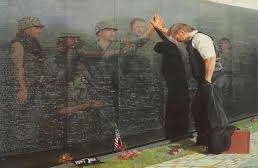 they go through either in the war, or after the war. It’s impossible. There are other kinds of survivors guilt, and I don’t suppose one is easier than the other, but it seems to me that because of the trust, companionship, and love these men feel for each other; and the idea that in the end, he couldn’t save the buddy or buddies who he felt were somehow his responsibility…well, it would be devastating. I can’t even begin to imagine. And the mind is a tough thing to get past, once it gets an idea firmly ingrained in it. For many soldiers, finally deciding that they aren’t living on borrowed time is a lifelong process, and all their family can do is pray they can make the transition back to living life again. I pray they can too.
they go through either in the war, or after the war. It’s impossible. There are other kinds of survivors guilt, and I don’t suppose one is easier than the other, but it seems to me that because of the trust, companionship, and love these men feel for each other; and the idea that in the end, he couldn’t save the buddy or buddies who he felt were somehow his responsibility…well, it would be devastating. I can’t even begin to imagine. And the mind is a tough thing to get past, once it gets an idea firmly ingrained in it. For many soldiers, finally deciding that they aren’t living on borrowed time is a lifelong process, and all their family can do is pray they can make the transition back to living life again. I pray they can too.
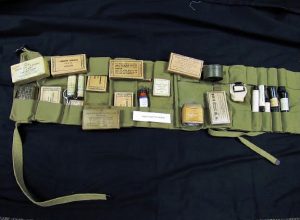 During World War II, if a man was a conscientious objector, things were…difficult. Things like that were not an automatic get out of the war card. Unless they had some necessary skill that would keep them stateside or in an office, they were signed up as a medic. Most of those men thought that was a good place for them, since the would be saving lives and not taking them, but I’m not sure who got it worse. The infantry or the medics.
During World War II, if a man was a conscientious objector, things were…difficult. Things like that were not an automatic get out of the war card. Unless they had some necessary skill that would keep them stateside or in an office, they were signed up as a medic. Most of those men thought that was a good place for them, since the would be saving lives and not taking them, but I’m not sure who got it worse. The infantry or the medics.
The men of the infantry usually considered the conscientious objectors to be cowards. That is not really the way a guy wanted to go into the army, but if they were seriously conscientious objectors, it was a calling they took seriously. 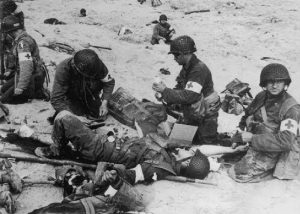 It was not, however, an easy job or the easy way out of combat. The difference between the infantrymen and the medics was that during combat, the infantrymen did their best to stay down, so the weren’t hit. The medics, on the other hand, ran into the fire to treat the wounded, and bring in the dead. It was no easy job.
It was not, however, an easy job or the easy way out of combat. The difference between the infantrymen and the medics was that during combat, the infantrymen did their best to stay down, so the weren’t hit. The medics, on the other hand, ran into the fire to treat the wounded, and bring in the dead. It was no easy job.
The medics, like most soldiers coming into the army were young men…boys really. They were often 18 or 19 years old. The infantrymen had plenty of names for them. None of them were nice…or complimentary, but the medics that stayed medics…the ones who ran into the fire to care for a wounded soldier were given new names. They were finally called medic…or more often Doc. And they were respected. They were also called hero, brave, courageous, and other respectful names. The 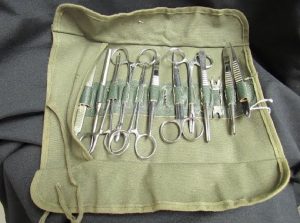 medics were not given the $10.00 per month extra that combat soldiers were given. That made the infantrymen furious. They collected money from each other to provide combat pay for their medics. The men refused to have their medics receive less.
medics were not given the $10.00 per month extra that combat soldiers were given. That made the infantrymen furious. They collected money from each other to provide combat pay for their medics. The men refused to have their medics receive less.
World War II saw eleven medics who received the Medal of Honor…as well as other medals. These men were wounded taking care of the men, and they were even killed saving the lives of the men in their care. These men were heroes, just like their counterparts in the infantry, and there isn’t an infantryman that ever fought, who would disagree.
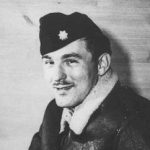 In a war, there are many heroes, and all too often, many of them are unsung heroes, who heroic acts all but go unnoticed. Lieutenant Colonel Matt Urban was one of those heroes, who actually became an Urban Legend, because of his uncanny ability to seemingly come back from the dead. Urban was one of the most decorated American officers of World War II. He fought in seven campaigns and was wounded seven times. Each time he was wounded, he seemingly came back to life…so often, in fact, that the Germans gave him the nickname “the Ghost.” When he was given the Medal of Honor, his citation referred to ten separate acts of bravery during the Normandy campaign alone.
In a war, there are many heroes, and all too often, many of them are unsung heroes, who heroic acts all but go unnoticed. Lieutenant Colonel Matt Urban was one of those heroes, who actually became an Urban Legend, because of his uncanny ability to seemingly come back from the dead. Urban was one of the most decorated American officers of World War II. He fought in seven campaigns and was wounded seven times. Each time he was wounded, he seemingly came back to life…so often, in fact, that the Germans gave him the nickname “the Ghost.” When he was given the Medal of Honor, his citation referred to ten separate acts of bravery during the Normandy campaign alone.
To name a few of the heroic and maybe just a little bit crazy acts of bravery, Urban took on multiple enemy tanks with a bazooka, all while walking on a cane because he’d broken his leg landing on Utah Beach. He organized multiple counterattacks after nearly having his leg blown off, then breaking himself out of the hospital, hitchhiking to the front, immediately throwing himself into battle, running into an abandoned tank and driving it toward the enemy line with no crew!! He was wounded again and again, but refused to be evacuated. Finally, a bullet in the throat took him out of combat for good. His reign of terror 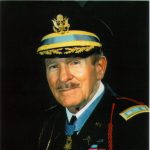 against the Germans was over, but not his life. Once again, the Germans couldn’t kill “the Ghost.” Urban recovered, survived the war, and lived until 1995. Urban died on March 4, 1995, in Holland, Michigan, at the age of 75. The cause of death was a collapsed lung, reportedly due to his war injuries. He is buried in Plot: Section 7a, Grave 40 at Arlington National Cemetery in Arlington, Virginia.
against the Germans was over, but not his life. Once again, the Germans couldn’t kill “the Ghost.” Urban recovered, survived the war, and lived until 1995. Urban died on March 4, 1995, in Holland, Michigan, at the age of 75. The cause of death was a collapsed lung, reportedly due to his war injuries. He is buried in Plot: Section 7a, Grave 40 at Arlington National Cemetery in Arlington, Virginia.
“Matt Louis Urban was a highly decorated United States Army combat soldier who served with distinction as an infantry officer in the Mediterranean and European Theater of Operations during World War II. He scouted, led charges upfront, and performed heroically in combat on several occasions despite being wounded. He retired after World War II as a lieutenant colonel. Urban received over a dozen individual decorations for combat from the U.S. Army, including seven Purple Hearts. In 1980, he received the Medal of Honor and four other individual decorations for combat belatedly for his actions in France and Belgium in 1944. In Section 7a of the “Prominent Military Figures”
Matt Urban was born Matthew Louis Urbanowicz in Buffalo, New York, to Polish immigrant Stanley Urbanowicz, 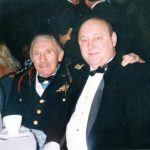 a plumbing contractor. His mother Helen was born in Depew, New York. He attended East High School in Buffalo, and graduated in 1937. Urban had three brothers: Doctor Stanley (Urbanowicz) Urban, Arthur (Urbanowicz) Urban, and Eugene, who died in 1927 from appendicitis. In the fall of 1937, he enrolled at Cornell University in Ithaca, New York, majoring in history and government with a minor in community recreation. He graduated on June 14, 1941, with a Bachelor of Arts degree. For reasons unknown, he used the name Matty L. Urbanowitz during his last year of college. While at Cornell University, he was a member of the Reserve Officers Training Corps (ROTC), the track and boxing teams, and the Kappa Delta Rho fraternity. Nevertheless, his greatest accomplishment was that of the Urban Legend known as “the Ghost.”
a plumbing contractor. His mother Helen was born in Depew, New York. He attended East High School in Buffalo, and graduated in 1937. Urban had three brothers: Doctor Stanley (Urbanowicz) Urban, Arthur (Urbanowicz) Urban, and Eugene, who died in 1927 from appendicitis. In the fall of 1937, he enrolled at Cornell University in Ithaca, New York, majoring in history and government with a minor in community recreation. He graduated on June 14, 1941, with a Bachelor of Arts degree. For reasons unknown, he used the name Matty L. Urbanowitz during his last year of college. While at Cornell University, he was a member of the Reserve Officers Training Corps (ROTC), the track and boxing teams, and the Kappa Delta Rho fraternity. Nevertheless, his greatest accomplishment was that of the Urban Legend known as “the Ghost.”
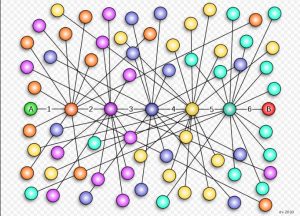 I’m sure that most you have heard of the theory of Six Degrees of Separation, but in case you haven’t, it is the idea that all living things and everything else in the world are six or fewer steps away from each other, so that a chain of “a friend of a friend” statements can be made to connect any two people in a maximum of six steps. I can’t say that I have ever doubted that idea, but I really never gave it much thought really. The idea was originally set out by Frigyes Karinthy in 1929 and popularized in an eponymous 1990 play written by John Guare. It is sometimes generalized to the average social distance being logarithmic in the size of the population. It is all about what a small world it is. That each person is connected to every other person by just 6 steps. It was something I never have given much thought to.
I’m sure that most you have heard of the theory of Six Degrees of Separation, but in case you haven’t, it is the idea that all living things and everything else in the world are six or fewer steps away from each other, so that a chain of “a friend of a friend” statements can be made to connect any two people in a maximum of six steps. I can’t say that I have ever doubted that idea, but I really never gave it much thought really. The idea was originally set out by Frigyes Karinthy in 1929 and popularized in an eponymous 1990 play written by John Guare. It is sometimes generalized to the average social distance being logarithmic in the size of the population. It is all about what a small world it is. That each person is connected to every other person by just 6 steps. It was something I never have given much thought to.
As I became interested in family history, I could see how that could work in the grand scheme of things, with relation. I came across people who were related to me, as well as, being related to my husband. Those relationships had meaning to me and it also made me think about the six degrees of separation that I had heard about years before.
But the reality is that the six degrees of separation never became so obvious to me as last Sunday when my husband had a heart attack. Instantly, we had a group of people around us. Of those people, all concerned for my husband, I knew no one. I only knew that the two women were nurses, and there was a young man who had seen my husband fall. Somewhere in the parking lot was also a woman who knew she needed to pray for him. When we left for the hospital in the ambulance, I thanked the man from across the distance between us in the parking lot, but I still didn’t know his name. I had no idea how I would ever find out who these people were. I knew they were all heroes, and I didn’t know them. Then the six degrees of separation came into play.
First, my husband was saved, and that was a miracle. It was because of 4 people I not only didn’t know, but had now way of finding. They did what they needed to do, and left expecting nothing in return. We owed them so much, and had no way to thank them. Enter the six degrees of separation. I told my husband’s nurse about what had happened, and when her relief came on the next day, she told her about it, and Stephanie, the day nurse already had the first connection for us. The first nurse to help, Ginger, was her sister. And Ginger had the second connection, because she knew the second nurse, Val. Within a few hours, 2 out of the 4 were now known to us. When when I posted about my husband’s miraculous recovery, our friend, Sierra Schamber tagged someone. It was Sean, the young man who helped him first. Then, a woman named Chelsea called her dad to pray. My boss called a prayer partner, who just happened to be on the wife of Chelsea’s dad. I know all those heroes. I think I fully understand the six degrees of separation.
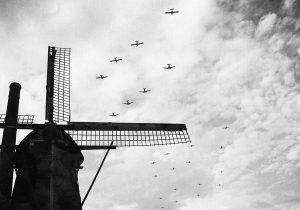 It has been 74 years since 17,740 Americans gave their lives to liberate the people of the Netherlands (often called Holland) from the Germans during World War II, and the people of Holland have never forgotten that sacrifice. For 74 years now, the people of the small village of Margraten, Netherlands have taken care of the graves of the lost at the Margraten American Cemetery. On Memorial Day, they come, every year, bringing Memorial Day bouquets for men and women they never knew, but whose 8,300 headstones the people of the Netherlands have adopted as their own. Of the 17,740 who were originally buried there, 9,440 were later moved to various paces in he United States by their families. “What would cause a nation recovering from losses and trauma of their own to adopt the sons and daughters of another nation?” asked Chotin, the only American descendant to speak on that Sunday 4 years ago. “And what would keep that commitment alive for all of these years, when the memory of that war has begun to fade? It is a unique occurrence in the history of civilization.”
It has been 74 years since 17,740 Americans gave their lives to liberate the people of the Netherlands (often called Holland) from the Germans during World War II, and the people of Holland have never forgotten that sacrifice. For 74 years now, the people of the small village of Margraten, Netherlands have taken care of the graves of the lost at the Margraten American Cemetery. On Memorial Day, they come, every year, bringing Memorial Day bouquets for men and women they never knew, but whose 8,300 headstones the people of the Netherlands have adopted as their own. Of the 17,740 who were originally buried there, 9,440 were later moved to various paces in he United States by their families. “What would cause a nation recovering from losses and trauma of their own to adopt the sons and daughters of another nation?” asked Chotin, the only American descendant to speak on that Sunday 4 years ago. “And what would keep that commitment alive for all of these years, when the memory of that war has begun to fade? It is a unique occurrence in the history of civilization.”
The people of Margraten immediately embraced the Americans, who had come to their aid when they needed it most. The town’s mayor invited the company’s commanders to sleep in his home, while the enlisted men slept in the schools. The protection against rain and buzz bombs was welcomed. Later, villagers hosted U.S. troops when the men were given rest-and-recuperation breaks from trying to breach the German frontier defenses, known as the Siegfried Line. “After four dark years of occupation, suddenly [the Dutch] people were free from the Nazis, and they could go back to their normal lives and enjoy all the freedoms they were used to. They knew they had to thank the American allies for that,” explained Frenk Lahaye, an associate at the cemetery.
By November 1944, two months after the village’s 1,500 residents had been freed from Nazi occupation by the U.S. 30th Infantry Division the town’s people were filled with gratitude, but the war wasn’t over. In late 1944 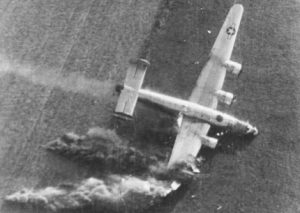 and early 1945, thousands of American soldiers would be killed in nearby battles trying to pierce the German defense lines. The area was filled with Booby-traps and heavy artillery fire. All that combined with a ferocious winter, dealt major setbacks to the Allies, who had already suffered losses trying to capture strategic Dutch bridges crossing into Germany during the ill-fated Operation Market Garden.
and early 1945, thousands of American soldiers would be killed in nearby battles trying to pierce the German defense lines. The area was filled with Booby-traps and heavy artillery fire. All that combined with a ferocious winter, dealt major setbacks to the Allies, who had already suffered losses trying to capture strategic Dutch bridges crossing into Germany during the ill-fated Operation Market Garden.
Now, the U.S. military needed a place to bury its fallen. The Americans ultimately picked a fruit orchard just outside Margraten. On the first day of digging, the sight of so many bodies made the men in the 611th Quartermaster Graves Registration Company ill. The bodies arrived in a procession of trucks and trailers. Death hung in the air over the whole village of Margraten. The sight of so much death caused a few of the people helping with the burials to become ill. They suddenly made a break for the latrines. The first burial at Margraten took place on November 10, 1944. Laid to rest in Plot A, Row 1, Grave 1: John David Singer Jr, a 25-year-old infantryman, whose remains would later be repatriated and buried in Denton, Maryland, about 72 miles east of Washington. Between late 1944 and spring 1945, up to 500 bodies arrived each day, so many that the mayor went door to door asking villagers for help with the digging. Over the next two years, about 17,740 American soldiers would be buried here, though the number of graves would shrink as thousands of families asked for their loved ones’ remains to be sent home, until 8,300 remained, and still, the graves are cared for by the town’s people, as if the dead were their own loved one. Not only that, but they have taken it upon themselves to research the deceased, and learn of their lives as a way of showing honor to these fallen heroes.
On May 29, 1945, the day before the cemetery’s first Memorial Day commemoration, 20 trucks from the 611th 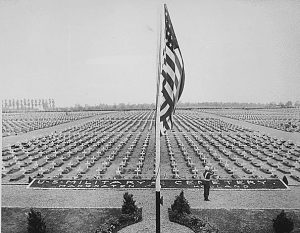 collected flowers from 60 different Dutch villages. Nearly 200 Dutch men, women and children spent all night arranging flowers and wreaths by the dirt-covered graves, which bore makeshift wooden crosses and Stars of David. By 8am, the road leading into Margraten was jammed with Dutch people coming on foot, bicycle, carriages, horseback and by car. Silent film footage shot that day shows some of the men wearing top hats as they carried wreaths. A nun and two young girls laid flowers at a grave, then prayed. Solemn-faced children watched as cannons blasted salutes. The Dutch, Shomon wrote, “were perceptibly stirred, wept in bowed reverence.” All they do for these heroes is because they have vowed never to forget.
collected flowers from 60 different Dutch villages. Nearly 200 Dutch men, women and children spent all night arranging flowers and wreaths by the dirt-covered graves, which bore makeshift wooden crosses and Stars of David. By 8am, the road leading into Margraten was jammed with Dutch people coming on foot, bicycle, carriages, horseback and by car. Silent film footage shot that day shows some of the men wearing top hats as they carried wreaths. A nun and two young girls laid flowers at a grave, then prayed. Solemn-faced children watched as cannons blasted salutes. The Dutch, Shomon wrote, “were perceptibly stirred, wept in bowed reverence.” All they do for these heroes is because they have vowed never to forget.
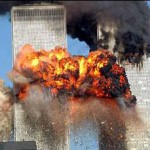 As the fourteenth anniversary of the September 11th attacks approached, movies that had been filmed following those horrible events began to show up on television again. I think I’ve already watched each and every one of them, but I always feel compelled to watch them again. It isn’t out of a morbid sense of curiosity, but rather as a reminder that there are people out there who are so evil that it is beyond our ability to comprehend. It is also a way to remind myself that there are heroes out there who set aside self, no matter what the danger, in an effort to save others.
As the fourteenth anniversary of the September 11th attacks approached, movies that had been filmed following those horrible events began to show up on television again. I think I’ve already watched each and every one of them, but I always feel compelled to watch them again. It isn’t out of a morbid sense of curiosity, but rather as a reminder that there are people out there who are so evil that it is beyond our ability to comprehend. It is also a way to remind myself that there are heroes out there who set aside self, no matter what the danger, in an effort to save others.
I like to hope that I would be one of those people who come together to save others, but I don’t think that the average citizen really knows what they would do, until they are placed in that position. Our flight instincts seem to be based on just how big a danger we perceive ourselves to be facing. I don’t think that I could leave someone in trouble, but I don’t know how I would feel about actually running into a building like the World Trade Center on September 11.
As I was watching the movie, I was reminded that there were a number of people who were simply never found 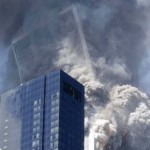 at the World Trade Center site. Never found!! In fact, there were over 1000 people who were never found. It was like they were simply vaporized. Of course, there might be pieces of them in the many, some small enough to fit in a test tube, pieces of human remains that have not been identified. It is shocking and sad to me to think that there are actually people who have never been given closure concerning their loved ones. All they know is that their loved ones were killed on September 11, 2001. They don’t know if they suffered, or if it was instant. There is simply no way to know. And that is horrifically hard. I don’t mean to sound morbid, but I have a really hard time when I think about the fact that in just a few hours, more than 1,000 people simply disappeared. In our world of DNA matches and so many other methods of identifying people, and so many pieces of bodies that have been found, I just don’t understand how those people could simply be nowhere, but they are. I think that true closure often comes from being able to view the body, and have a funeral using the real body of the loved one. In the absence of that body, the mind plays tricks on us. We hope that maybe they somehow survived and simply have amnesia or something. Even though we know that is probably wrong.
at the World Trade Center site. Never found!! In fact, there were over 1000 people who were never found. It was like they were simply vaporized. Of course, there might be pieces of them in the many, some small enough to fit in a test tube, pieces of human remains that have not been identified. It is shocking and sad to me to think that there are actually people who have never been given closure concerning their loved ones. All they know is that their loved ones were killed on September 11, 2001. They don’t know if they suffered, or if it was instant. There is simply no way to know. And that is horrifically hard. I don’t mean to sound morbid, but I have a really hard time when I think about the fact that in just a few hours, more than 1,000 people simply disappeared. In our world of DNA matches and so many other methods of identifying people, and so many pieces of bodies that have been found, I just don’t understand how those people could simply be nowhere, but they are. I think that true closure often comes from being able to view the body, and have a funeral using the real body of the loved one. In the absence of that body, the mind plays tricks on us. We hope that maybe they somehow survived and simply have amnesia or something. Even though we know that is probably wrong.
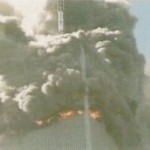
As this fourteenth anniversary of that horrible day arrives, I pray for those who lost loved ones, and those who will never know what happened to their loved ones. I pray that they are able to have emotional closure, even if they can’t have full closure. For the rest of us, I hope that we will never forget what happened that day, the people who died, and the people who did this. Terror and terrorists continue to exist in our world, and they don’t care if their victims were tolerant of their beliefs or not. They have one agenda, and one agenda only, to kill all infidels, because in their minds, that is their obligation and their right. We must stay alert, lest we find ourselves open to another attack.
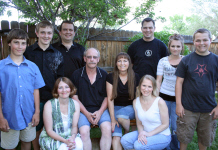 I have been caregiving for my parents and my in-laws now for almost 7 years. In the last couple of days, I have spoken to clients and business associates who know about my situation, and as we spoke, the conversation turned to the blessing of my girls and my grandchildren. I don’t know how I would have made it through these last 7 years without them. Each and every one of them has gone above and beyond the call of duty, and their husbands have given up time with my girls and their kids to make sure that I had the help I needed. How do you ever re-pay such love, kindness, and compassion? You can’t, of course. You are simply forever in their debt…and forever grateful that they answered the call of duty and took on a responsibility that was bigger than any they had ever known, and one for which none of us had any formal training.
I have been caregiving for my parents and my in-laws now for almost 7 years. In the last couple of days, I have spoken to clients and business associates who know about my situation, and as we spoke, the conversation turned to the blessing of my girls and my grandchildren. I don’t know how I would have made it through these last 7 years without them. Each and every one of them has gone above and beyond the call of duty, and their husbands have given up time with my girls and their kids to make sure that I had the help I needed. How do you ever re-pay such love, kindness, and compassion? You can’t, of course. You are simply forever in their debt…and forever grateful that they answered the call of duty and took on a responsibility that was bigger than any they had ever known, and one for which none of us had any formal training.
As I told of the help I received, I felt such a sense of pride in my family. I am able to count on my whole family to step up and help me in caring for their grandparents. Right down to my teenaged grandchildren. In fact, my grandchildren have been helping out in the field of caregiving since the youngest was 7 years old. They were not squeamish, or grossed out by blood or any of the other things they saw. These were their grandparents, and they love them. The rest didn’t matter. I was and still am so proud of them. Words cannot say how proud, because there are no words big enough. I am also grateful beyond words to each one of them, because they never let me down…not once in those 7 years, and I know I can always count on them. It was not with a sense of gloating that I told of the help my family stepped up to give me, it was more with a sense of gratitude and pure awe at all that they had done. Talk about heroes!!! Heroes don’t come in a finer form than my kids and grandkids.
No one ever wants to be in a position of having to make life changing decisions for their parents, but the harsh reality is that before this is all over, most of us will have to make those decisions….and I’m not just talking about life support and nursing homes. Many of us have to make the decision as to “do we go to the doctor or the hospital” over and over. Many of us have to help out with daily activities too, such as dressing, bathing, meds, shots, and bedtime. Sure, these are hard things to take on for your parents, in-laws, or grandparents, but for me and my family, the decisions are a no-brainer. Do everything to help them to live, and live life to the fullest extent that they possibly can. And when it comes to doing that, I know that my kids and grandkids are right there with me…on board in every way. I just can’t ever thank them enough for the awesome support they have given me and their grandparents at this difficult stage in the lives of my parents, their grandparents. I love you all…more that I can EVER say!!

